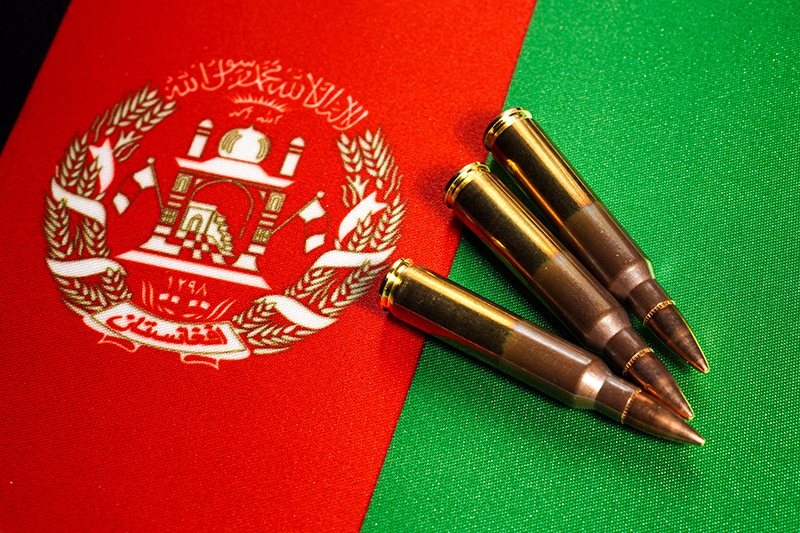
Mental health disorders have emerged as a major cause of disability in Afghanistan.1 The World Health Organization (WHO) estimates that 17% of Afghanistan’s population suffers from mental health problems including anxiety, depression, and post-traumatic stress disorder (PTSD).2 Decades of protracted political violence have not only exposed Afghans to violent conflict, but has also pushed ordinary Afghans deep into poverty, which previous research shows is inextricably linked to poor mental health in Afghanistan.3 The mental health toll can only be expected to worsen as a Gallup poll released in late 2019 showed that 85% of young people, most of whom were unemployed, reported that they were “suffering” and predicted that their quality of life would decline in the next five years.4
An unavoidable of consequence of the ongoing political upheaval is the extent to which Afghans suffer from PTSD symptoms. While studies focusing on PTSD prevalence and its determinants are limited, early studies conducted after 9/11 indicate that the prevalence of PTSD is 42% in nationally representative samples, with women at higher risk.5 Other studies, including my own, underscore the severity of PTSD symptoms, highlighting the frequency with which several symptoms of intrusion (e.g., recurrent triggering of trauma related memories) and avoidance (e.g., avoidance of both internal and external reminders of previously experienced traumatic events) commonly occur among Afghans.3, 6
So what do Afghans find helpful in terms of remediating symptoms of psychological trauma in a cultural context where mental disorders are highly stigmatized? My recent study of urban Afghans explores this very question. I found that the majority of respondents (70%) resorted to religious activities when psychologically impaired, whereas only 11% sought help from a psychiatrist or psychologist, and 17% indicated seeking help from a primary care physician.7 Although an array of personal, cultural and structural barriers explains the propensity not to seek help among Afghans, efforts by the Ministry of Health of Afghanistan to improve access to mental health services by moving such services away from hospital-based care and integrating them into the primary care sector have only been met with financial, human, infrastructural and information resource limitations.8
Moreover, a 2011 WHO report indicates that the majority of primary health care doctors and nurses have not received official in-service training on mental health within the last five years.9 The lack of trained psychiatrists, psychiatric nurses, psychologists and social workers compounds the mental health crisis and presents a serious quality of care challenge for mental health service delivery.10 As of mid-2019, there were only 0.231 psychiatrists and 0.296 psychologists per 100,000 population, rates which are comparably lower than those observed in other politically unstable countries such as the Syrian Arab Republic and Iraq.11
Access to quality mental health services is especially limited in rural areas because the system remains largely hospital-based and most mental health outpatient facilities are located in overcrowded urban centers.12 For rural dwellers, it is a struggle to access services as well due to the lack of security, absence of nearby health facilities, and costs associated with travel expenses, medication, or private doctor fees.13 For poor people, the utilization of services entirely depends on the availability of free medications, which is available to only 1% of the population, whereas others pay up to eight Afghanis or 16% of their daily minimum wage for psychotropic medications.12
With regard to service costs and fees, households’ out-of-pocket (OOP) expenditures or direct payments for health services in general are high, accounting for 73% of total national healthcare expenditures.14 High OOP costs are attributed to the fact that the country does not have a social health insurance scheme for its people. Article 52 of the country’s constitution calls for the state’s obligation to provide preventive healthcare, medical treatment, and proper health facilities to its citizens free of charge. However, the provision of free healthcare has been stifled due to varying interpretations of the law and differing opinions among high-ranking government officials. For example, while many policymakers interpret Article 52 as a mandate for the provision of free services, some believe that only certain services must be provided free of charge.15
The unmet need for mental health services in Afghanistan is apparent. And so long as a social insurance scheme is not instituted, OOP costs will continue to divert household income and will serve as a barrier to accessing mental health services. However, it also may not be financially or otherwise feasible for all to access biomedical and behavioral health systems. Tapping into community-based or lay/traditional systems, as so many already do, would provide an opportunity for Afghans to gain easier access and improve their functioning, if these systems are indeed effective for some. Finally, studies are needed to investigate the risk- and protective-factors of PTSD in order to design psychosocial interventions that point to common characteristics of individuals who suffer.
Author Bio:

Qais Alemi, PhD, MPH, MBA
Dr. Alemi is an Associate Professor in the Department of Social Work & Social Ecology. He teaches courses in research methods. He has a passion for global health and conducts translational studies related to the health and well-being of conflict-affected populations. His research interests also include the psychosocial consequences of discrimination and stigma in ethnic minority populations
References
- Institute for Health Metrics and Evaluation. (2017). Afghanistan. Retrieved from: http://www.healthdata.org/afghanistan
- World Health Organization. (2020). Afghanistan. Mental Health. Retrieved from: http://www.emro.who.int/afg/programmes/mental-health.html
- Miller, K. E., Omidian, P., Rasmussen, A., Yaqubi, A., & Daudzai, H. (2008). Daily stressors, war experiences, and mental health in Afghanistan. Transcultural Psychiatry, 45(4), 611-638.
- Azad, S. (2019). Endless conflict in Afghanistan is driving a mental health crisis. Retrieved from:https://foreignpolicy.com/2019/09/27/endless-conflict-in-afghanistan-is-driving-a-mental-health-crisis/
- Cardozo, B. L., Bilukha O. O., Crawford, C. A. G. et al. (2004). Mental health, social functioning, and disability in postwar Afghanistan. JAMA, 292, 575–84.
- Alemi, Q., Stempel, C., Koga, P. M., Montgomery, S., Smith, V., Sandhu, G., ... & Requejo, J. (2018). Risk and protective factors associated with the mental health of young adults in Kabul, Afghanistan. BMC Psychiatry, 18(1), 71.
- Alemi, Q., Montgomery, S., Smith, V., et al. (2018). Examining help-seeking patterns within modern and traditional resources for support in Afghanistan. Intervention, 16(3), 215.
- World Health Organization. (2016). Afghanistan health profile 2015. Retrieved from http://apps.who.int/iris/handle/10665/250375
- World Health Organization. (2011). Mental health atlas 2011. Retrieved from: https://www.who.int/mental_health/evidence/atlas/profiles/afg_mh_profile.pdf?ua=1&ua=1
- World Health Organization. (2020). Mental and disability health. Retrieved from: http://www.emro.who.int/afg/programmes/mental-health.html
- World Health Organization. (2019). Global health observatory data repository. Retrieved from: http://apps.who.int/gho/data/node.main.MHHR?lang=en
- WHO AIMS Report. Mental Health System in Afghanistan. https://www.who.int/mental_health/evidence/Afghanistan_WHO_AIMS_Report.pdf
- Human Rights Watch. (2019). Afghanistan: little help for conflict-linked trauma. Retrieved from: https://www.hrw.org/news/2019/10/07/afghanistan-little-help-conflict-linked-trauma
- Ministry of Public Health of Afghanistan. (2013). Afghanistan national health accounts 2011–2012. Kabul: Ministry of Public Health, Afghanistan.
- Zeng, W., Kim, C., Archer, L., Sayedi, O., Jabarkhil, M. Y., & Sears, K. (2017). Assessing the feasibility of introducing health insurance in Afghanistan: a qualitative stakeholder analysis. BMC health services research, 17(1), 157.
